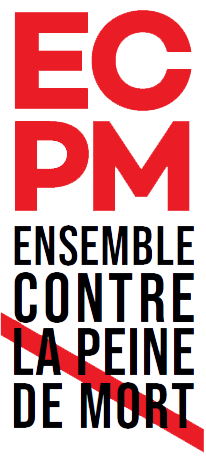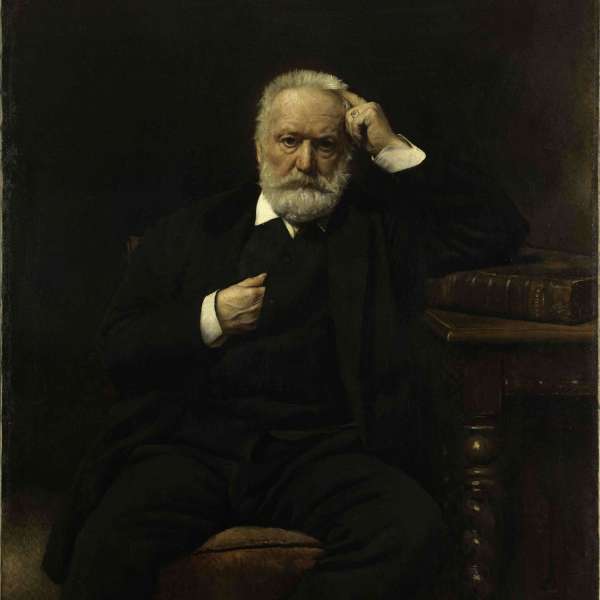15
VICTOR HUGO
FRANCE
Peinture à l’huile de Daniel Saubès
Paris, Maisons de Victor Hugo Paris-Guernesey
© Paris Musées
1802 – 1885
Poète, dramaturge, écrivain, romancier et député français
RESSOURCES :
-
Le dernier jour d’un condamné
-
Victor Hugo et la peine de mort
-
Le combat de Victor Hugo contre la peine de mort
-
Activité « Victor Hugo et la peine de mort » (dossier documentaire)
-
La culture au service de l’abolition
« La peine de mort est le signe spécial et éternel de la barbarie. Partout où la peine de mort est prodiguée, la barbarie domine ; partout où la peine de mort est rare, la civilisation règne. »
Victor Hugo
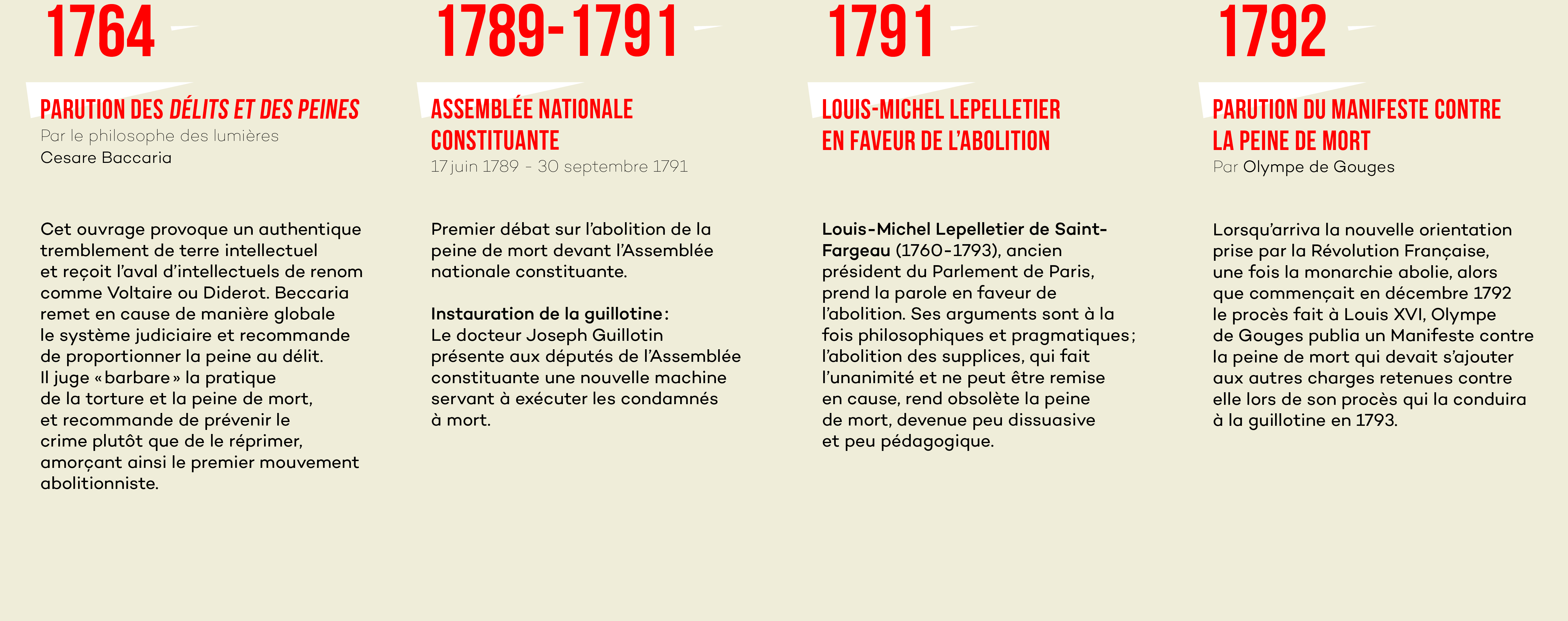
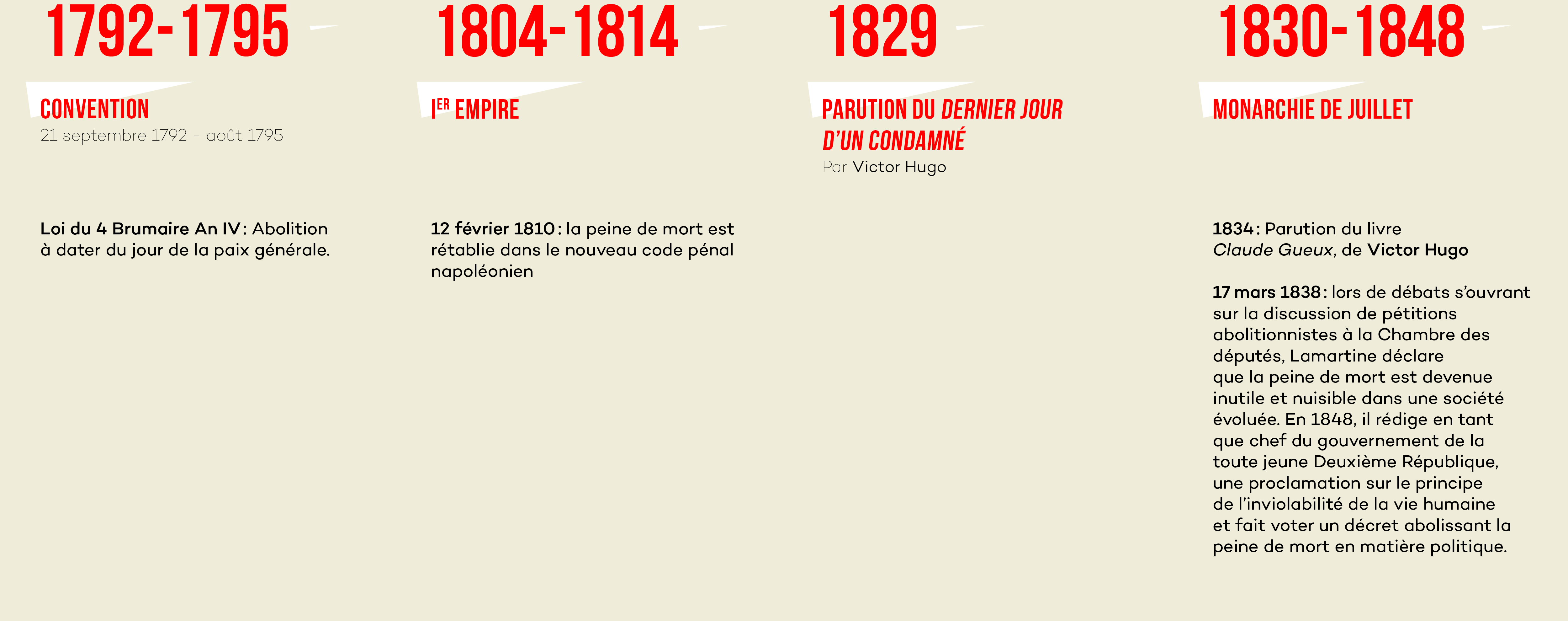
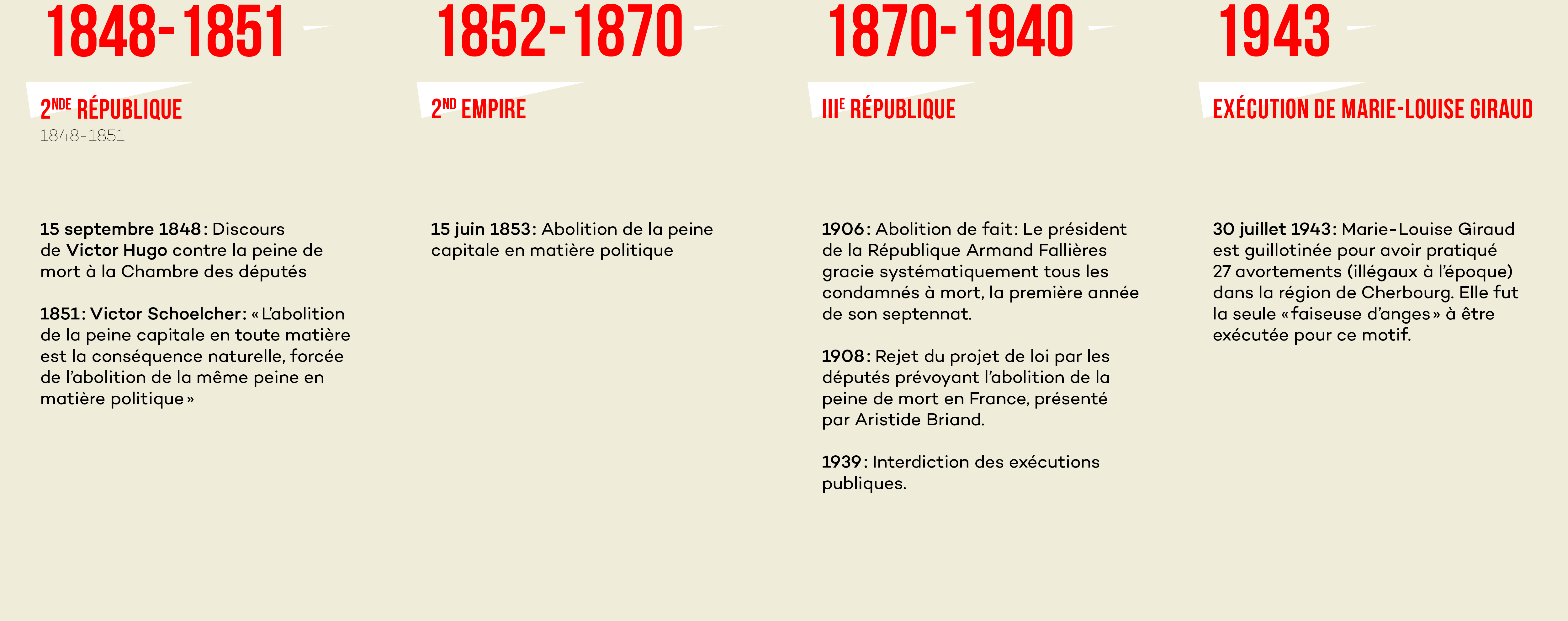
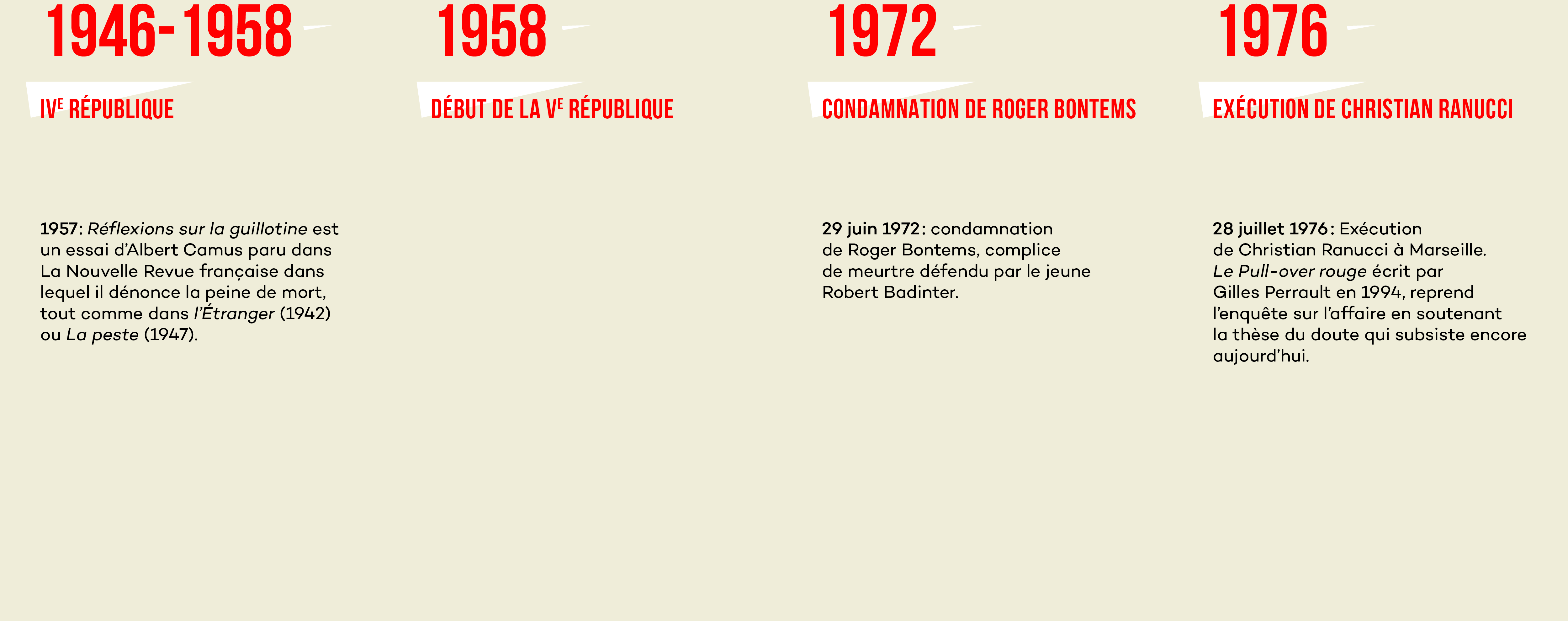
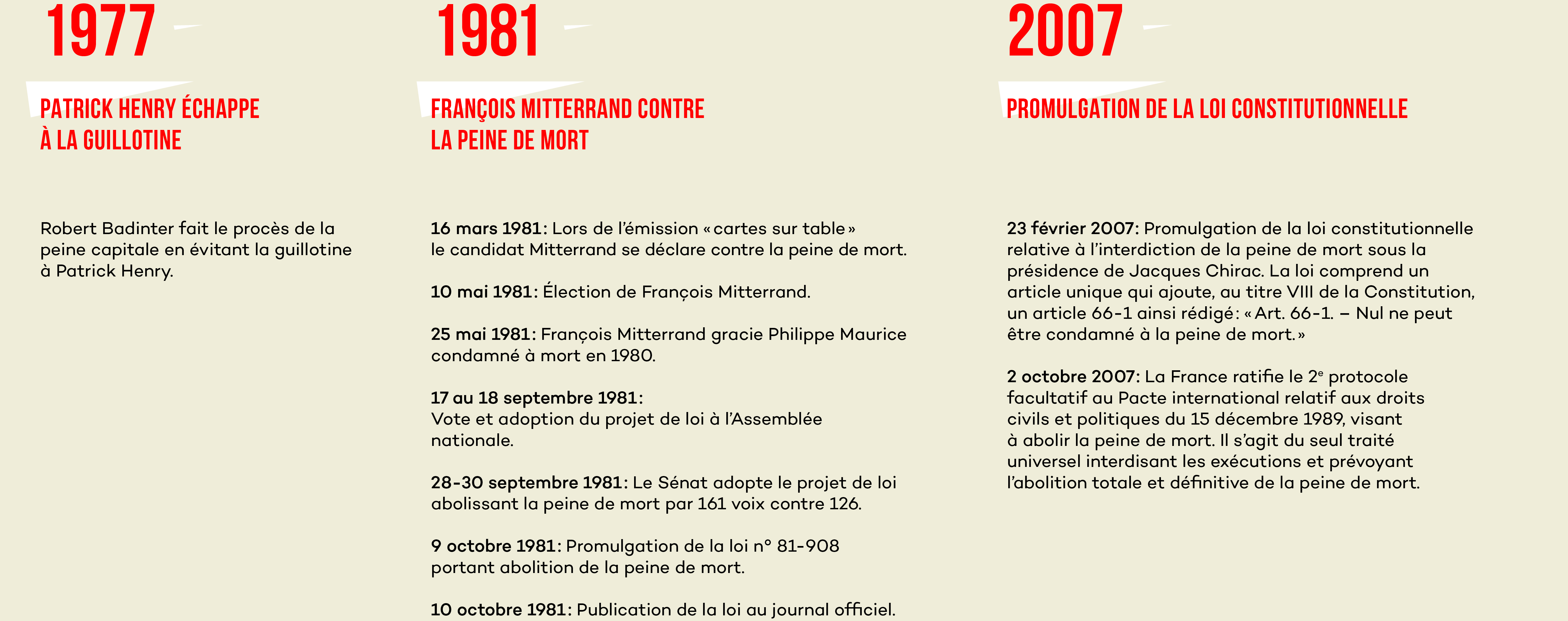
Précédent
Suivant
En 1823, Victor Hugo est seulement âgé de 21 ans lorsqu’il publie son premier texte sur l’abolition de la sanction capitale, Han d’Islande. Pour lui, c’est une conviction absolue, la peine de mort n’est pas compatible avec la justice. Tout dans son œuvre le clame. Ses biographes expliquent l’engagement du poète par les visions de tortures qu’il a eu à affronter durant son enfance et adolescence. Âgé de neuf ans et alors qu’il vit en Espagne, le jeune Victor assiste à l’exhibition d’un tréteau de bois où l’on s’apprête à garrotter un homme. Vient ensuite l’image du morbide spectacle d’une voleuse marquée au fer rouge par le bourreau. Mais le véritable traumatisme est celui de l’exécution publique de Louvel, à laquelle il assiste. Il a dix-huit ans. Il écrit cet ébranlement moral sept années plus tard, au lendemain de la décapitation d’Honoré Ulbach – condamné pour l’assassinat d’Aimée Millot qui l’avait éconduit – le 10 septembre 1827, dans Le Dernier Jour d’un condamné (publié en 1829).
L’art peut-il changer une opinion ? La littérature a-t-elle un quelconque poids dans la lutte abolitionniste ? Dans l’ensemble de son œuvre littéraire abolitionniste, Victor Hugo cherche à créer un impact sur le lecteur. Il décrit avec précision et intensité la guillotine, machine à décapiter, mais aussi les sentiments des hommes prêts à monter sur l’échafaud, et l’injustice d’une telle peine. Ses élans littéraires sont fougueux et au militant engagé s’adjoignent des qualités d’écrivain et d’orateur indéniables. Dès lors, Victor Hugo a la volonté de défendre ses idées au-delà même de l’écriture, sur la place publique. Il passe de la fiction à l’action. Sa première tentative se produit alors qu’il est élu Pair de France. Il entreprend de convaincre ses collègues, lors du procès de Pierre Lecomte, d’écarter le châtiment suprême. Ce premier essai est vain. Hugo ne parvient à persuader que deux autres votants de remplacer l’exécution par la réclusion criminelle à perpétuité, et Lecomte est guillotiné le 8 juin 1846. Les propos du poète ont néanmoins impressionné les membres de la Chambre des pairs, qui avaient compté sur la grâce royale.
Parallèlement, les textes abolitionnistes de l’écrivain se propagent, sous forme d’articles, d’essais, de romans ou même dans son journal intime : Ode contre la peine de mort (1830), Claude Gueux (1834), Littérature et philosophie mêlées (1834), L’Exécution de Louis XVI (1840), La Guillotine à Alger (1842), Dicté par moi le 6 juin (1846), Journal de ce que j’apprends chaque jour (1846), Visite à la conciergerie (1846), Loi sur les prisons, projet de discours (1847) jusqu’à La Peine de mort – discours à l’Assemblée constituante, le 15 septembre 1848. Les engagements humanistes de Victor Hugo se concrétisent réellement suite à la révolution de 1848 Mais à la Chambre, lors des débats sur la sanction capitale, l’argumentaire hugolien ne suffit pas pour basculer les esprits dans le camp de l’abolition. Qu’il s’agisse d’un idéal chrétien : « Nous vous demandons de consacrer […] l’inviolabilité de la vie humaine […] Il y a trois choses qui sont à Dieu et qui n’appartiennent pas à l’homme : l’irrévocable, l’irréparable, l’indissoluble. Malheur à l’homme s’il les introduit dans ses lois[1] », d’un argument civilisationnel : « La peine de mort est le signe spécial et éternel de la barbarie. Partout où la peine de mort est prodiguée, la barbarie domine ; partout où la peine de mort est rare, la civilisation règne » ou encore d’une parole prophétique et culpabilisante « N’en doutez pas, demain vous l’abolirez, ou vos successeurs l’aboliront[2] », l’Assemblée ne suit pas les quelques députés qui, comme Hugo votent sans concession pour « l’abolition pure, simple et définitive de la peine de mort ». C’est un second échec pour l’homme politique qui cependant n’abandonne jamais sa cause. Ses textes visant à éveiller le monde sur la nécessité d’abroger le châtiment suprême continuent de fleurir à un rythme soutenu et ce, jusqu’à la fin de sa vie, avec la parution de Arabi en 1882.
Grâce à son immense popularité, Hugo a permis de faire éclore dans le débat public un sujet jusqu’alors loin des préoccupations de ce peuple qu’il a tant et tant défendu.
Marie Bardiaux-Vaïente
[1] Victor Hugo, Écrits sur la peine de mort.
[2] Ibid.
- livre
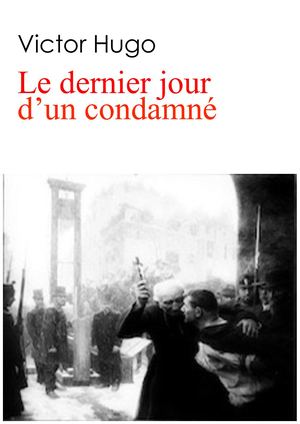
Le dernier jour d’un condamné
Auteur : Victor Hugo
Pays : France
Genre : Roman
Date de parution : 1929
Ce roman se présente comme le journal d’un condamné à mort écrit durant les vingt-quatre dernières heures de son existence dans lequel il raconte ce qu’il a vécu depuis le début de son procès jusqu’au moment de son exécution, soit environ cinq semaines de sa vie. Ce récit, long monologue intérieur, est entrecoupé de réflexions angoissées et de souvenirs de son autre vie, la « vie d’avant ». Le lecteur ne connaît ni le nom de cet homme, ni ce qu’il a fait pour être condamné, mis à part la phrase : « moi, misérable qui ai commis un véritable crime, qui ai versé du sang ! ». L’œuvre se présente comme un témoignage brut, à la fois sur l’angoisse du condamné à mort et ses dernières pensées, les souffrances quotidiennes morales et physiques qu’il subit et sur les conditions de vie des prisonniers, par exemple dans la scène du ferrage des forçats. Il exprime ses sentiments sur sa vie antérieure et ses états d’âme.
- film
https://www.youtube.com/watch?v=htKQjoPbDlA&t=102s%20https://multimedia-ext.bnf.fr/conferences/020314_badinter.mp4
Victor Hugo et la peine de mort
Présenté par Robert Badinter
Date : 14 mars 2002
Bibliothèque nationale de France
Durée : 1h
Robert Badinter, avocat, homme politique, ancien ministre de la Justice est connu pour son combat acharné contre la peine de mort dont il obtient l’abolition en 1981.
Il a été particulièrement marqué chez Victor Hugo par ce qui fut le premier, le plus long et le plus constant de tous les combats de l’écrivain – celui qu’il mena contre la peine de mort. Ce combat d’Hugo contre la peine de mort est d’abord mené au moyen de son oeuvre littéraire. Dans deux romans, Le Dernier jour d’un condamné (1829) et Claude Gueux (1834), il dépeint la cruauté des exécutions capitales auxquelles il a assisté dans son enfance. Dès l’enfance, il est fortement impressionné par la vision d’un condamné conduit à l’échafaud puis par les préparatifs du bourreau dressant la guillotine en place de Grève. Hanté par ces « meurtres judiciaires », il va tenter toute sa vie d’infléchir l’opinion en décrivant l’horreur de l’exécution, sa barbarie, en démontrant l’injustice et l’inefficacité du châtiment. Utilisant son génie d’écrivain et son statut d’homme politique, il met son talent au service de cette cause, à travers romans, poèmes, plaidoiries devant les tribunaux, discours et votes à la Chambre des pairs, à l’Assemblée puis au Sénat, articles dans la presse européenne et lettres d’intervention en faveur de condamnés en France comme à l’étranger.
- podcast
Le combat de Victor Hugo contre la peine de mort
- activité
Victor Hugo et la peine de mort dossier documentaire (Maison Victor Hugo) :Button
- quiz
